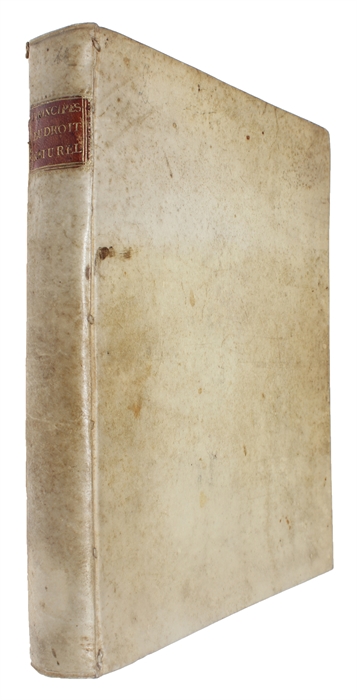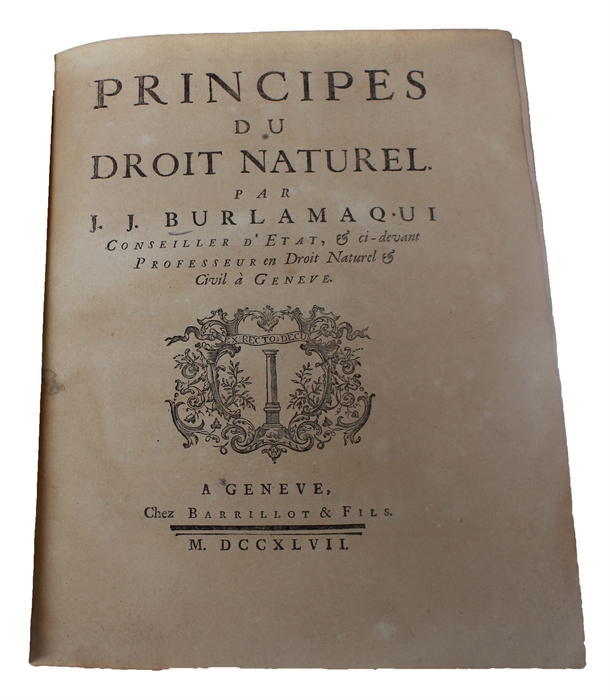LIFE, LIBERTY AND THE PURSUIT OF HAPPINESS
BURLAMAQUI, J.J.
Principes du Droit Naturel.
Geneve, Barrillot & Fils, 1747.
4to. Contemporary full vellum with gilt title-label to spine. Binding a bit soiled, but overall nice and tight. Title-page a bit toned, but otherwise very nice and clean. XXIV, 352 pp.
The uncommon first edition of Burlamaqui's groundbreaking main work - the only work that he himself published - which, with its vision of constitutionalism, constituted a major influence upon the American Founding Fathers. It is in the present work that the quest for happiness as a natural human right is articulated for the first time, a principle that Thomas Jefferson, directly influenced by the present work, later restated in the Declaration of Independence.
Jean-Jacques Burlamaqui (1694-1748) was very well respected as an eminent legal and political theorist. He was born in Geneva, and at the age of 25, he was designated honorary professor of ethics and the law of nature at the university there. Before taking up the appointment, he travelled through France and England, where he made the acquaintance of the most eminent writers of the period. Upon his return, he began lecturing and soon gained a wide reputation for his eloquence and for the precision of his views. In his introduction, Nugent (in his 1748 translation of the work into English) said of Burlamaqui: "His singular beauty consists in the alliance he so carefully points out between ethics and jurisprudence, religion and politics, after the example of Plato and Tully, and the other illustrious masters of antiquity."
Burlamaqui's lectures drew many foreign students to Geneva, and his natural law treatise, the only work that he published in his life-time, was translated into English, Latin, Dutch, Danish, Italian, and Spanish and was republished in more than sixty different editions. The English translation became a standard textbook both at Cambridge and at the foremost American colleges. Burlamaqui's work was well known by the Founding Fathers, and his writings exerted considerable influence on the American constitutional system. Burlamaqui's work also exercised considerable influence upon the likes of Rousseau and Diderot.
Order-nr.: 52100


